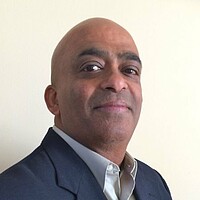In debate, Republicans call on tech sector to aid terrorism fight
Loading...
Regardless of how the battle against terrorism evolves over the next few years, most Republicans presidential candidates want tech companies to become a critical component in the fight to thwart violent extremism.
If that hadn’t already become clear in the days following the terrorist attacks in San Bernardino, Calif., it was hammered home at the Republican debate Tuesday night as candidates pointed to encryption, social media, and other communications technologies as enabling terrorist plots globally.
With the notable exception of Sen. Rand Paul of Kentucky, Republicans appeared allied in calling for greater visibility into the communications taking place online, whether with the tech sector's willing assistance or through the coercive authority of government.
"Technology has moved on, and the terrorists have moved on with it," said Carly Fiorina, a former Hewlett Packard chief executive officer, at the CNN debate in Las Vegas. "We need the private sector’s help, because government is not innovating."
Republican frontrunner Donald Trump doubled down on his recent and controversial calls for somehow shutting down a portion of the Internet to prevent the Islamic State (IS or ISIS) from using it to spread terror propaganda.
"ISIS is using the Internet better than we are using the Internet, and it was our idea," Mr. Trump said. "I [want] to get our brilliant people from Silicon Valley and other places and figure out a way that ISIS cannot do what they’re doing," he said. "You talk freedom of speech. You talk freedom of anything you want. I don’t want them using our Internet to take our young, impressionable youth."
Encryption technologies, long a target of lawmakers and law enforcement, also received blame from candidates for obscuring the communications of the San Bernardino attackers and that of the Boston Marathon bombers.
"We need to be able to penetrate these people when they are involved in these plots and these plans," said Ohio Gov. John Kasich. Law enforcement authorities need the ability to penetrate and disrupt communications being carried out via encrypted channels, said Mr. Kasich. "Encryption is a major problem, and Congress has got to deal with this and so does the president to keep us safe."
In raising such issues, the Republican candidates were for the most part echoing similar calls from Democrats in recent weeks.
For instance, news that San Bernardino shooter Tashfeen Malik shared jihadist messages via Facebook spurred several calls that US immigration authorities be allowed to check the social media postings of visa applicants. Democratic frontrunner Hillary Clinton recently urged American technology firms to assist the government in disrupting IS activities by taking down jihadist websites and propaganda material.
Sen. Dianne Feinstein (D) of California, the vice chairman of the Senate Intelligence Committee, earlier this month introduced a bill that would require technology companies to inform law enforcement of online activity they deem to be militant or terrorist in nature. The bill does not require technology companies to specifically monitor for activities like distribution of propaganda material, attack planning, and terror recruiting but to only inform law enforcement if they become aware of it.
It is too soon to say whether the growing clamor for greater visibility into encrypted data, social media, and other forms of communications will result in actual policy changes or new laws at the federal level.
Responding to a question during the Tuesday debate, Ms. Fiorina suggested that technology companies are willing to help government if they are asked for it. "They do not need to be forced. They need to be asked to bring the best and brightest, the most recent technology to the table."
But that may take some doing. Silicon Valley is no stranger to government pressure but it has resolutely refused so far to acquiesce to demands for weakening encryption and building in government access to communications products.
If anything, it has only dug in its heels even more following Edward Snowden’s leaks that revealed pervasive government surveillance practices at home and abroad. Companies such as Apple and Google are now offering encryption capabilities that even the companies cannot decrypt if asked by law enforcement agencies with a warrant. And social media firms such as Facebook have said they intend to protect the right to free speech on their platforms as long as needed.
"The idea of requiring technology companies like those in Silicon Valley to assist with backdoors in encryption dates back to the 1990s," said Thomas Ristenpart, computer science professor at Cornell University and a member of its security group. "The consensus of the expert community is and always has been that trying to require backdoors in crypto security would weaken security for average users."
Any benefits to law enforcement from such weakening are nebulous at best, said Mr. Ristenpart.
The question though is whether Silicon Valley’s long standing antipathy toward enabling government access in their products will be enough to stop Washington from forcing them to do so under the aegis of national security.
The deadly terrorist attacks in Paris and San Bernardino have added a new sense of urgency and determination to get technology companies to comply. At least for the moment, the presidential candidates appear to be betting that public concerns over national security trump concerns over free speech and privacy issues.
"The next time there is attack on … this country, the first thing people are going to want to know is, why didn’t we know about it and why didn’t we stop it?" said Sen. Marco Rubio of Florida. "And the answer better not be because we didn’t have access to records or information that would have allowed us to identify these killers before they attacked," he said to loud applause.






